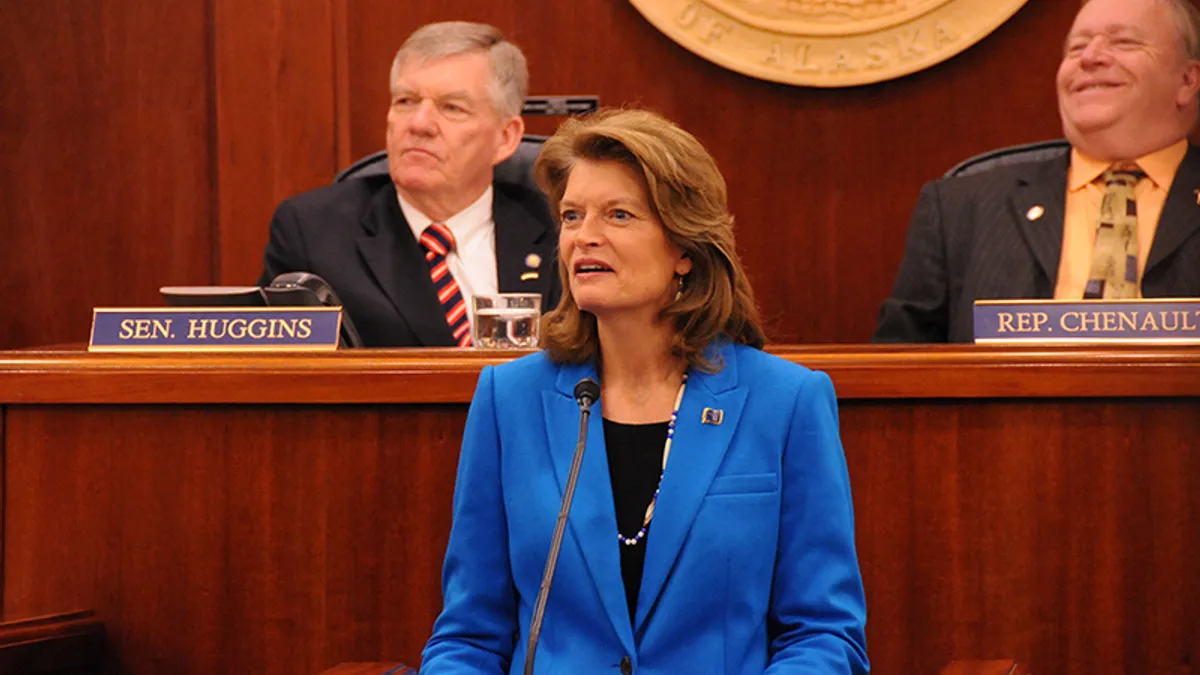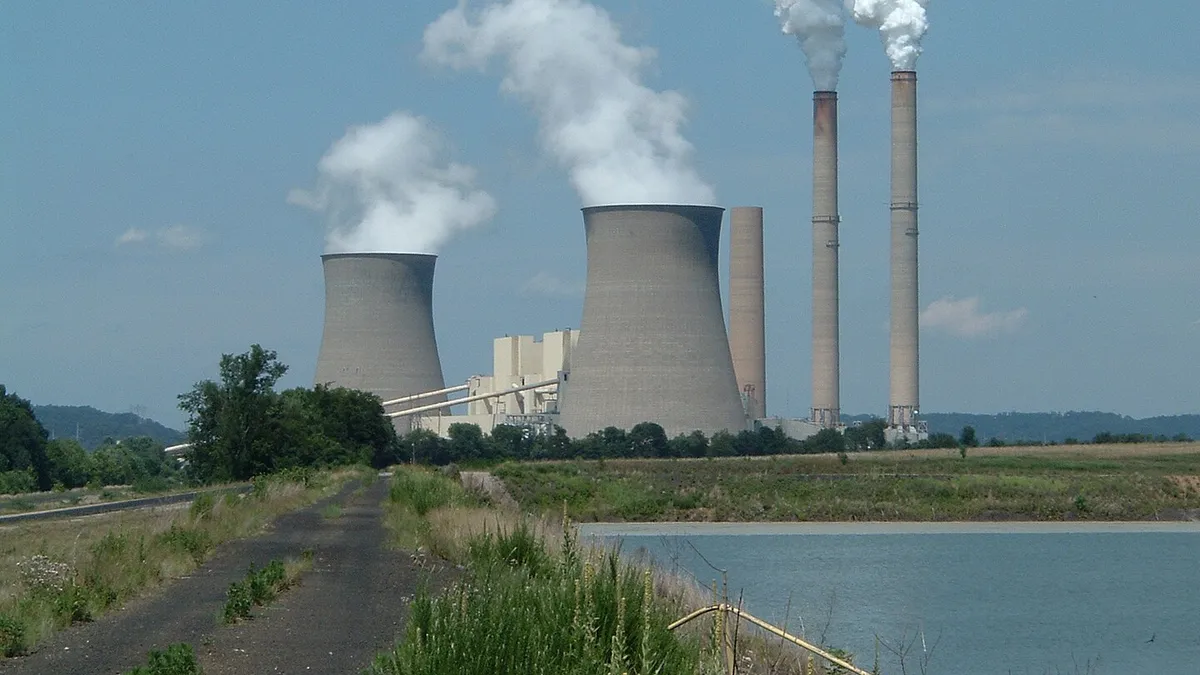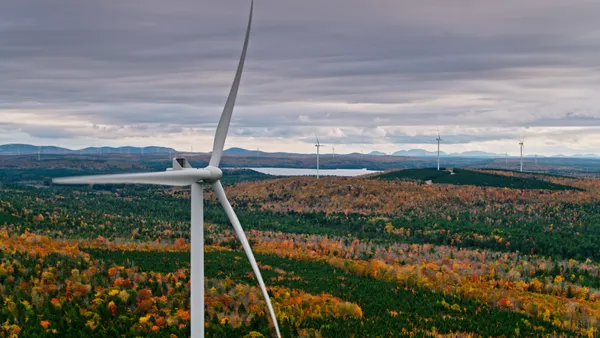UPDATED: March 10, 2020: The Senate energy package stalled on Monday over an amendment that would limit the use of hydrofluorocarbons — potent greenhouse gases.
"I am incredulous the Senate did not vote to invoke cloture on our substitute amendment after a year of regular process in the Energy and Natural Resources Committee," Senate Energy and Natural Resources Chair Lisa Murkowski, R-Alaska, said in a statement.
"It is beyond frustrating to have our bill, which contains priorities from more than 70 Senators, held up by an unrelated dispute that was never part of our discussions in the lead-up to this floor process," she said, adding the bill's supporters "will regroup and look for a path forward."
Dive Brief:
-
Sens. Lisa Murkowski, R-Alaska, and Joe Manchin, D-W.Va., introduced a comprehensive bipartisan energy bill on Thursday.
-
The 555 page legislative package combines almost all the 50 energy bills that were reported to the Senate in 2019, and is intended to increase innovation in clean energy technologies. The bill will focus on energy efficiency, renewables, energy storage, carbon capture, nuclear power and electric vehicles, while supply chain security provisions include establishing a domestic rare earth supply chain, cybersecurity and grid modernization.
-
"This bill is our best chance to modernize our nation's energy policies in more than 12 years," Murkowski, who chairs the Senate Committee on Energy and Natural Resources (ENR), said in a statement. Senate majority leader Mitch McConnell, R-Ky., is planning to bring the legislative package to the Senate floor for a possible vote as early as next week.
Dive Insight:
ENR has been mulling a way to move on climate and energy for over a year, according to the committee's press release announcing the bill.
Last year, the Senate was anticipated expected to release a comprehensive bill in response to the Democrats' fossil fuel-free Green New Deal package, introduced by Rep. Alexandria Ocasio-Cortez, D-N.Y. and Sen. Edward Markey, D-Mass.
"Our motto has been very simple: we don't eliminate, we innovate," Manchin, who serves as ranking member of ENR, said when the Green New Deal was introduced. He along with the Trump Administration DOE and Federal Energy Regulatory Commission officials have consistently pushed an "all of the above strategy" on energy that includes federal funding for coal and a continued use of fossil fuels.
Carbon capture has been a major focus of ENR and fossil fuel groups see its potential as vital to keeping coal and gas plants in the market as pressure for decarbonization mounts.
"Chairman Lisa Murkowski and Ranking Member Joe Manchin have put together a bill full of common-sense provisions that will help address climate change by continuing to take advantage of America's abundance of clean natural gas and our extensive delivery network," AGA President and CEO Karen Harbert said in a press release following the bill's announcement.
The bill directs DOE's Fossil Energy office to establish a coal and natural gas technology program "to improve the efficiency, effectiveness, costs, and environmental performance of coal and natural gas use" and eliminates a section of the 2007 Energy Independence and Security Act, which banned fossil fuels from certain federal buildings.
Energy efficiency groups were more critical of the bill, noting it eliminates essential provisions of the bipartisan "Portman-Shaheen" Energy Savings and Industrial Competitiveness Act of 2019, specifically a provision that allows homeowners to qualify for larger mortgage loans when buying more energy efficient homes.
"Unfortunately the package leaves out the most impactful efficiency provisions of the Portman-Shaheen legislation, even though that legislation has repeatedly drawn broad bipartisan support in committee and on the Senate floor," Alliance to Save Energy Vice President Ben Evans said in a statement. "That's a big missed opportunity, and we will continue working with our Republican and Democratic supporters to get these provisions added back to the bill."
The Murkowski-Manchin bill also includes several provisions around nuclear energy, which has been another big area of focus for ENR. Energy storage has also seen bipartisan support in the committee as well as increased interest from DOE, and would get a boost in research funding, along with wind and solar under the bill.
McConnell filed to proceed next week on a Murkowski-Manchin geothermal research and development bill, which will serve as the legislative vehicle for advancing this package, according to ENR. Once senators vote to proceed on the geothermal bill, Murkowski and Manchin plan to introduce a substitute amendment with the full text of their legislative package.















